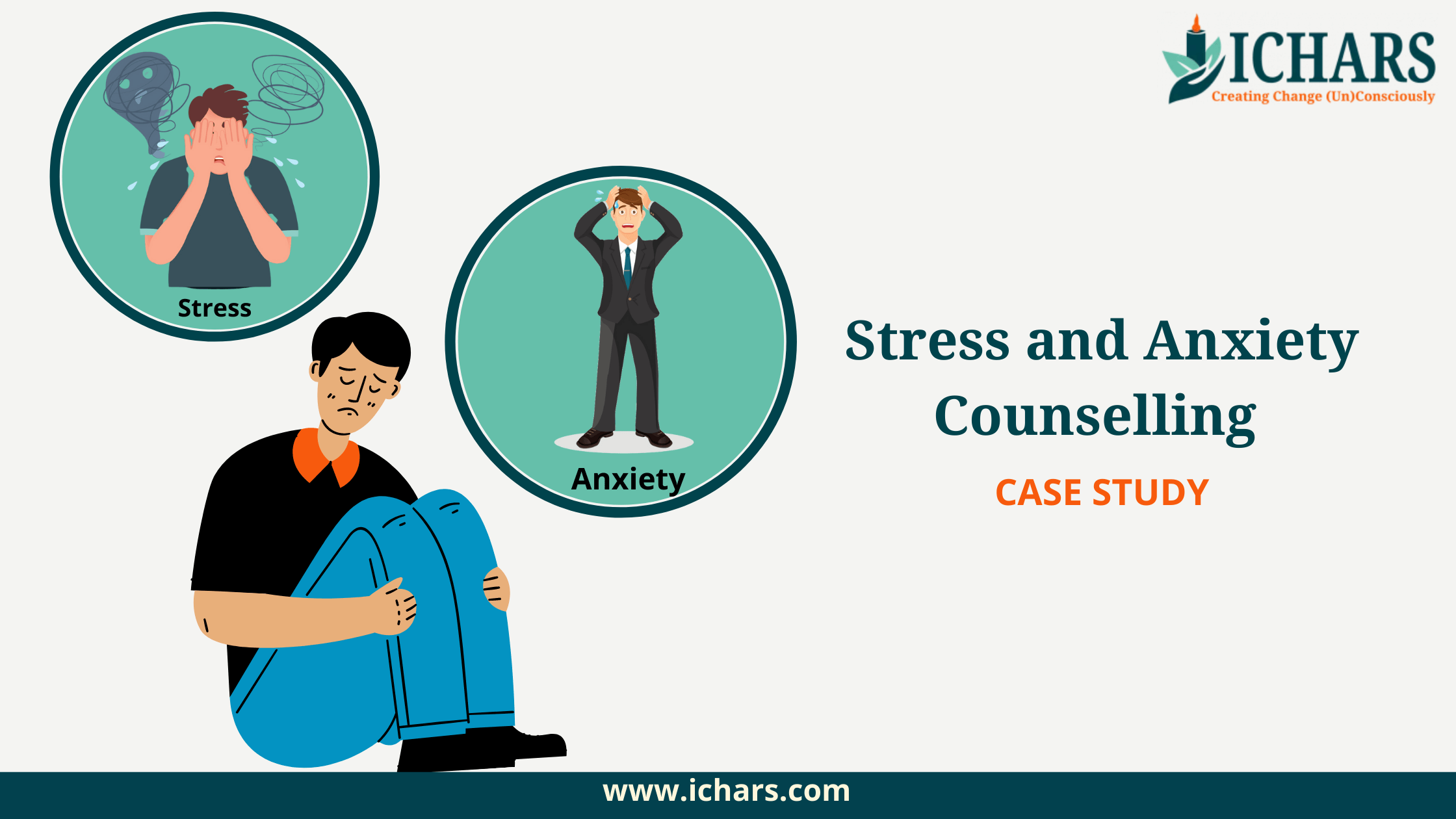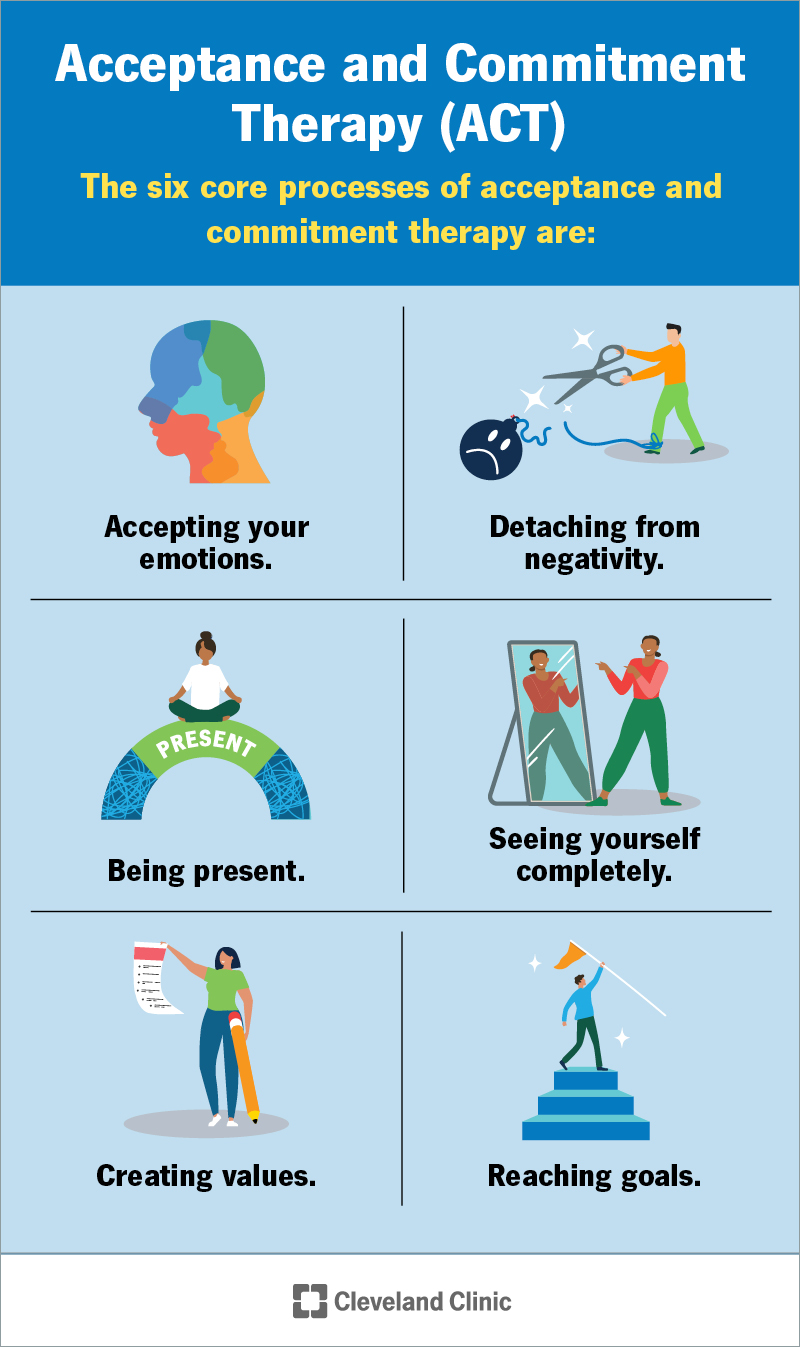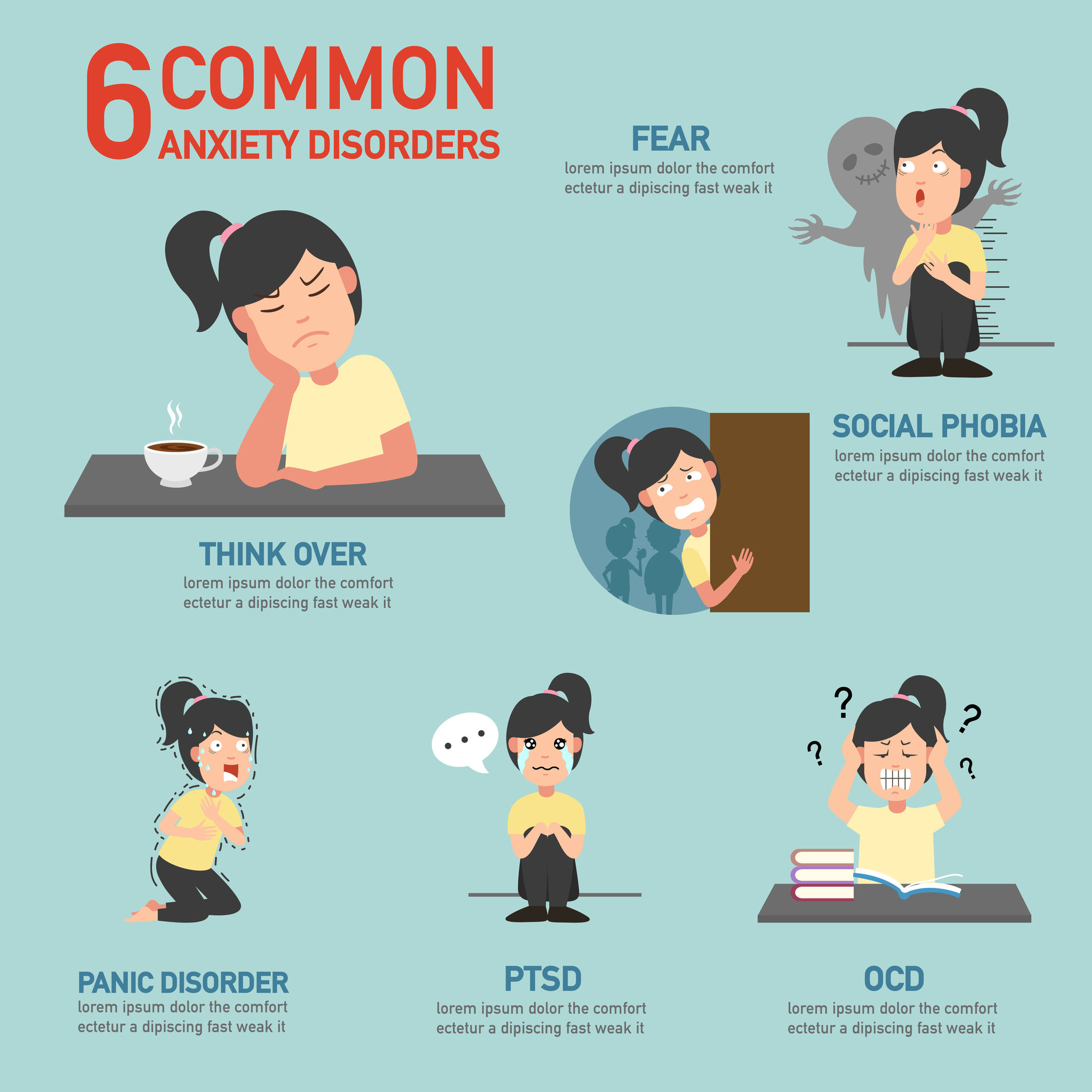Checking Out Various Approaches in Therapy for Anxiousness Condition for Long-term Adjustment
When taking on stress and anxiety disorders, it's crucial to check out a selection of therapy approaches. Each approach uses distinct insights and tools to assist you handle your signs efficiently. You may locate that integrating strategies can produce the very best outcomes. Nevertheless, recognizing the nuances of these techniques is vital to fostering lasting adjustment. What if the appropriate combination could launch a brand-new level of emotional wellness for you?
Comprehending Anxiousness Problems: A Quick Review
Stress and anxiety problems, which affect countless people worldwide, can greatly impact day-to-day live. You may experience overwhelming sensations of concern or stress that appear uncontrollable. These sensations can cause physical symptoms like a racing heart, sweating, or perhaps wooziness. Common sorts of stress and anxiety disorders consist of generalized anxiety condition, panic attack, and social stress and anxiety condition. Each has special signs, yet they all share a tendency to disrupt your regular and relationships.Understanding the origin of your stress and anxiety is vital. It might originate from genetics, brain chemistry, or life experiences. Recognizing your triggers can help you handle your responses better. It is very important to remember that you're not the only one in this battle. Lots of people face similar obstacles, and looking for help is a solid action towards sensation much better. By finding out about anxiety problems, you're already on the course to understanding and handling your problem better.
Cognitive-Behavioral Treatment: Challenging Negative Thought Patterns
In Cognitive-Behavioral Therapy, you'll begin by identifying the adverse thought causes that contribute to your anxiousness. As soon as you recognize these ideas, you'll service replacing them with even more positive options. With each other, you'll develop efficient coping approaches to assist handle your anxiety in everyday scenarios.
Recognizing Negative Idea Triggers

When you come across moments of distress, acknowledging the specific triggers behind your adverse ideas can be vital in managing stress and anxiety. Start by taking notice of scenarios that prompt feelings of concern or concern. Is it a crowded space, an upcoming target date, or a discussion with certain people? Write down these instances in a journal. This will aid you identify patterns in your thinking. Also, notice physical feelings that accompany your negative ideas, like an auto racing heart or rigidity in your upper body. By pinpointing these triggers, you gain insight into what's fueling your anxiousness. Recognizing these connections is the primary step in testing those ideas and eventually restoring control over your psychological reactions.
Changing Thoughts With Positives
Challenging adverse thought patterns is an important action in transforming your frame of mind and decreasing anxiety. You might frequently locate yourself entraped in cycles of self-doubt or catastrophic thinking. As opposed to letting these ideas dictate your feelings, practice changing them with sensible choices or positive affirmations. For instance, when you believe, "I can't handle this," shift it to, "I can handle difficulties one step at a time." This basic change can significantly influence your psychological state. Frequently identifying and countering these adverse thoughts aids develop a healthier interior dialogue. Bear in mind, it requires time and effort, but consistently practicing this method can bring about enduring change, encouraging you to encounter anxiety with renewed confidence and durability.
Structure Coping Strategies Together
Replacing negative thoughts is only the beginning of managing stress and anxiety successfully. To develop long lasting change, you require to build coping methods that empower you. Cognitive-Behavioral Therapy (CBT) assists you determine and challenge those purposeless idea patterns. With each other, you and your therapist can explore how these thoughts influence your sensations and behaviors.Start by developing practical strategies, like journaling or mindfulness workouts, that allow you to confront anxiousness head-on. When you face your anxieties slowly, you'll find out to react in a different way.

Mindfulness and Acceptance-Based Approaches: Growing Present-Moment Understanding
As you navigate the intricacies of stress and anxiety, integrating mindfulness and acceptance-based strategies can considerably enhance your capacity to cultivate present-moment understanding. By concentrating on the right here and currently, you'll locate that you can observe your ideas and feelings without judgment (Counseling services for anxiety). This technique assists you recognize your stress and anxiety without feeling bewildered by it.Engaging in mindfulness workouts, such as deep breathing, body scans, or guided reflections, allows you to ground on your own in your present experience. Acceptance-based techniques encourage you to welcome your feelings instead of battle versus them. When you approve your sensations, they shed their power over you.Incorporating these methods into your everyday routine can transform exactly how you react to anxiety. You'll create resilience and find out to navigate stressful situations with better simplicity. Eventually, growing present-moment understanding lays the foundation for lasting modification, encouraging you to lead an extra fulfilling life
Direct Exposure Therapy: Challenging Anxieties Gradually
Direct exposure treatment assists you challenge your fears in a gradual method, making it much less overwhelming. You'll find out strategies to deal with anxiety-provoking scenarios step by step, while additionally building coping approaches to manage your reactions. This technique empowers you to take control and decrease stress and anxiety gradually.
Gradual Exposure Methods

When dealing with anxiety, slowly facing your anxieties can be an effective method to reclaim control. This technique, referred to as gradual direct exposure, involves slowly exposing yourself to the circumstances or objects that activate your anxiety. Begin with much less challenging situations and slowly function your method approximately more challenging ones. For instance, if you hesitate of public speaking, you may start by talking before a mirror, after that advance to sharing thoughts with a buddy, and eventually address a tiny group. Each step helps desensitize you to the concern, developing your confidence over time. Bear in mind, it's vital to rate yourself and celebrate small triumphes as you relocate with this procedure, enhancing your ability to handle anxiousness successfully.
Building Coping Approaches
Building effective coping methods is essential for taking care of anxiousness, especially as you confront your fears slowly - Counseling services for anxiety. One powerful approach is direct exposure treatment, where you begin by encountering your anxieties in a regulated fashion. Start with less intimidating circumstances and slowly work your means as much as more difficult situations. This progressive direct exposure assists desensitize you to stress and anxiety sets off, making them less overwhelming.Incorporate leisure methods, such as deep breathing or mindfulness, to soothe your mind during direct exposure. Track your progression, celebrating tiny victories in the process to enhance your confidence. Keep in mind, it's fine to take your time; the goal isn't perfection but consistent enhancement. By constructing these techniques, you'll encourage on your own to navigate stress and anxiety and accept life more fully
Psychodynamic Treatment: Revealing Origin Reasons of Anxiousness
Psychodynamic therapy explores the unconscious mind, disclosing the source of your anxiousness. By analyzing your ideas, feelings, and past experiences, this technique assists you discover underlying disputes and unresolved problems that may add to your existing stress and anxiety. You'll work with a specialist to examine childhood experiences, relationships, and psychological patterns that shape your actions today.As you get understanding into these deeper layers of your psyche, you'll start to acknowledge how previous events affect your existing actions. This understanding can lead to catharsis, permitting you to process emotions you may have suppressed.Through the therapeutic relationship, you can also identify defense reaction that may have developed in time, providing a clearer path to transform. Inevitably, psychodynamic treatment equips you with the devices to resolve your anxiousness at its core, promoting long-term change in your psychological wellness.
Integrative and Holistic Methods: Combining Techniques for Greater Effectiveness
Integrating different therapeutic strategies can enhance your journey toward taking care of anxiety extra effectively. By incorporating components from cognitive-behavioral therapy, mindfulness methods, and holistic approaches, you can develop an individualized approach that addresses your unique needs. You could utilize cognitive-behavioral strategies to challenge negative thought patterns while including mindfulness workouts to ground yourself in the existing moment.Additionally, discovering holistic methods such as yoga exercise or meditation can advertise relaxation and minimize anxiousness signs and symptoms. This mix allows you to create better self-awareness and resilience.Experimenting with these diverse approaches can help you discover what resonates most with you. Keep in mind, it has to do with finding a synergy that functions, as opposed to staying with a solitary method. This integrative method not just offers instant relief but also promotes lasting skills for managing anxiety, encouraging you to recover control over your life.
The Role of Assistance Systems: Building Strength With Link
While it might appear that handling stress and anxiety is a singular trip, having a strong support group can play an essential role in your resilience. Surrounding yourself with compassionate buddies, family members, or support system creates a secure space where you can freely share your experiences and feelings. When you get in touch with others, you remind on your own that you're not the only one in this struggle.These relationships use inspiration and can provide practical coping strategies that have worked for others. It's likewise an opportunity to get point of view; good friends can aid you see scenarios differently, decreasing sensations of isolation.Moreover, psychological support promotes a feeling of belonging, which can greatly reduce anxiety symptoms. By leaning on your support system, you can build resilience and deal with obstacles more efficiently. Bear in mind, getting to out for assistance signifies toughness, and it can make all the difference in your journey toward taking care of anxiety.
Often Asked Inquiries
What Are the Typical Symptoms of Stress And Anxiety Conditions?
You might experience uneasyness, exhaustion, problem focusing, impatience, muscle mass tension, and sleep disruptions. Physical signs can include rapid heartbeat, sweating, and trembling. Acknowledging these signs early can aid you look for proper support and treatment.
For How Long Does Therapy Generally Last for Anxiousness Problems?
Therapy for stress and anxiety conditions typically lasts anywhere from a few weeks to several months. It truly depends on your individual demands, progress, and the techniques your therapist makes use of to help you manage your stress and anxiety successfully.
Can Medication Be Used Together With Treatment for Stress and anxiety?
Yes, medication can absolutely be utilized along with treatment for anxiousness. Incorporating both approaches commonly boosts treatment effectiveness, assisting you handle symptoms while checking out underlying issues with counseling (Counseling services for anxiety). Always consult your doctor for individualized recommendations
Exist Self-Help Approaches for Handling Anxiousness?
Yes, there are numerous self-help strategies for taking care of anxiety. You can exercise mindfulness, involve in normal exercise, maintain a balanced diet plan, establish a routine, and utilize deep breathing methods to aid reduce anxiety symptoms properly.
Just how Do I Know if I Need Expert Assistance for Anxiety?
